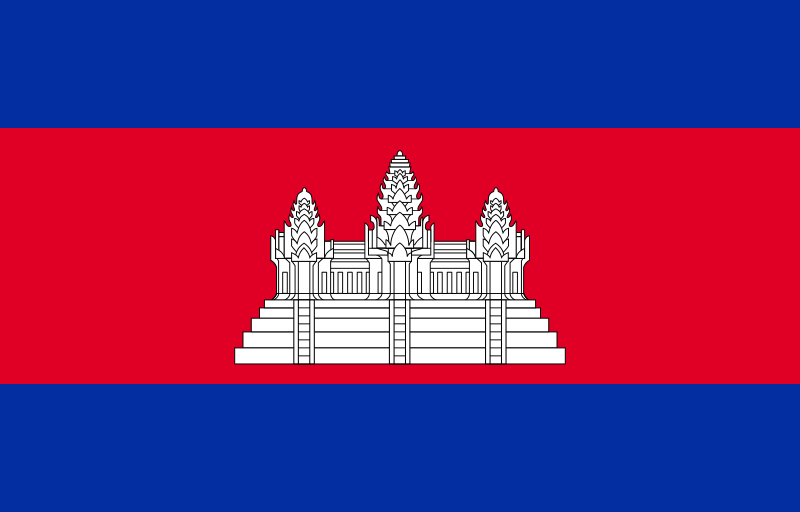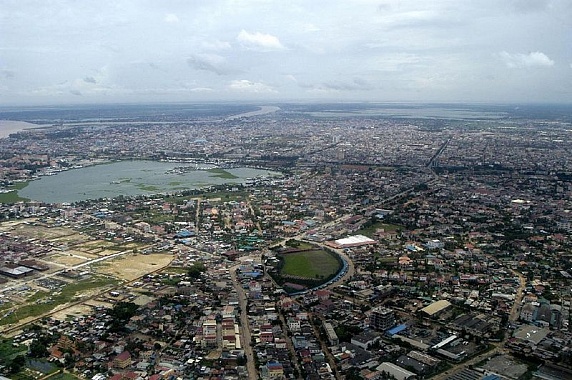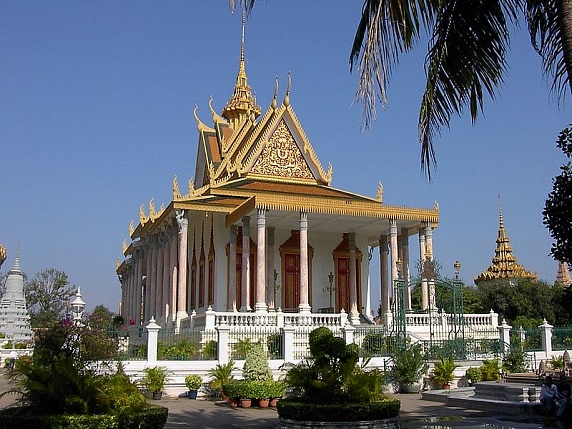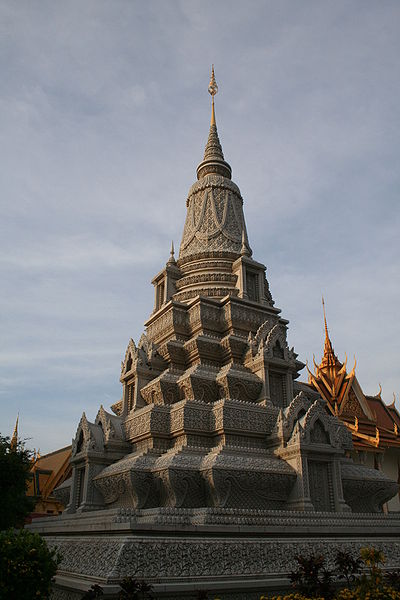 the Kingdom of Cambodia
the Kingdom of Cambodia
Comment by the Information and Press Department on the upcoming visit to Russia by Senior Minister, Minister of Foreign Affairs and International Cooperation the Kingdom of Cambodia Prak Sokhonn
On August 22-25, Senior Minister, Minister of Foreign Affairs and International Cooperation the Kingdom of Cambodia Prak Sokhonn will visit Russia. He will hold talks with Foreign Minister Sergey Lavrov and will attend the 10th meeting of the Russian-Cambodian Intergovernmental Commission on Trade, Economic, Scientific and Technical Cooperation.
During the talks, the ministers will hold in-depth discussion of the current state of bilateral relations and prospects for strengthening them in many areas, with the focus on the implementation of the agreements that have been recently reached at the top level. They will also coordinate their countries’ positions on current international and regional issues.
Russian-Cambodian relations have been growing consistently in the past few years. Their political dialogue and ties between their legislative authorities, ministries and agencies, as well as their leading political parties, are growing stronger.
The sides outlined the key priorities and practical tasks for the further development of their cooperation during the exchange of visits by the heads of the Russian and Cambodian governments in 2015 and 2016, as well as during a meeting between President of Russia Vladimir Putin and Prime Minister of Cambodia Hun Sen, which was held on the sidelines of the Russia-ASEAN Summit in Sochi on May 19, 2016.
Russian-Cambodian relations are based on traditions of friendship and cooperation that date back many years. Last year, the sides marked the 60th anniversary of their diplomatic relations, which were established on May 13, 1956. Russia has made a great contribution to Cambodia’s socioeconomic development and to its revival after the overthrow of the Khmer Rouge. Russia actively contributed to the preparation and signing of the Paris Peace Accords on a comprehensive political settlement in Cambodia and to the UN peacekeeping operation in Cambodia in 1991-1993.
Russia and Cambodia coordinate their efforts at the UN and other multilateral organisations and forums based on their similar or identical views on the majority of current issue of the global agenda, primarily the creation of a new security and cooperation architecture in the Asian-Pacific region. Russia and Cambodia are set to carry on their cooperation, including at such venues as the East Asia Summit (EAS), ASEAN Regional Forum (ARF), ASEAN Defence Ministers' Meeting (ADMM-Plus), Conference on Interaction and Confidence-Building Measures in Asia (CICA), Asia-Europe Meeting (ASEM), and Asia Cooperation Dialogue (ACD).
New cooperation prospects were created in July 2015, when Cambodia received the status of Dialogue Partner at the Shanghai Cooperation Organisation, and in May 2016, when the Kingdom of Cambodia and the Eurasian Economic Commission signed a memorandum of mutual understanding.
Russia and Cambodia are focused on promoting their trade, economic and investment cooperation. The leading role in these efforts belongs to the bilateral Intergovernmental Commission, which is co-chaired by Russian Minister of Communications and Mass Media Nikolai Nikiforov. Participants in the upcoming plenary session of the Intergovernmental Commission, which will be held in Moscow on August 23, will discuss the results of joint efforts to implement the decisions of the commission’s ninth meeting (Phnom Penh, March 2016) and will also set out a plan of practical actions to promote bilateral cooperation in priority areas.
In 2016, Russian-Cambodian trade increased by 30.2 per cent to $144.2 million. Russian exports to Cambodia, worth $7.8 million, mostly comprise machinery, equipment and transportation vehicles, foodstuffs and agricultural raw materials, timber, pulp and paper, and chemicals. Cambodian exports to Russia ($136.3 million) mostly comprise textiles, food products and agricultural raw materials. In January through May 2017, bilateral trade increased by 3.6 per cent and reached $53.8 million.
There is great potential for bilateral cooperation in energy, including nuclear energy, the mining and processing of mineral resources, agriculture, transport, telecommunications, and tourism.
The priority in the cultural sphere is promoting educational exchanges. At present, there are 80 Cambodian scholarship students at Russian civilian universities. Overall, over 8,000 Cambodian professionals have been trained in Russia during the years of the two countries' cooperation. The Russian Centre of Science and Culture in Phnom Penh conducts cultural and public awareness activities. The parties are also working to develop ties between their young people.
The tourism sector has big potential: some 50,000 Russian tourists visited Cambodia in 2015 and 2016 each. This figure is expected to increase following the signing of an interdepartmental tourism cooperation programme for 2015-2017, which was signed in Moscow in March 2015, and an air transport services agreement that will facilitate direct flights between Russia and Cambodia, which was signed in Phnom Penh in November 2015.
The upcoming visit by a high-ranking Cambodian delegation to Russia will help strengthen practical interaction between the two countries, which fully meets their long-term interests and the goals of security and sustainable development in Southeast Asia and the Asian-Pacific region as a whole.










